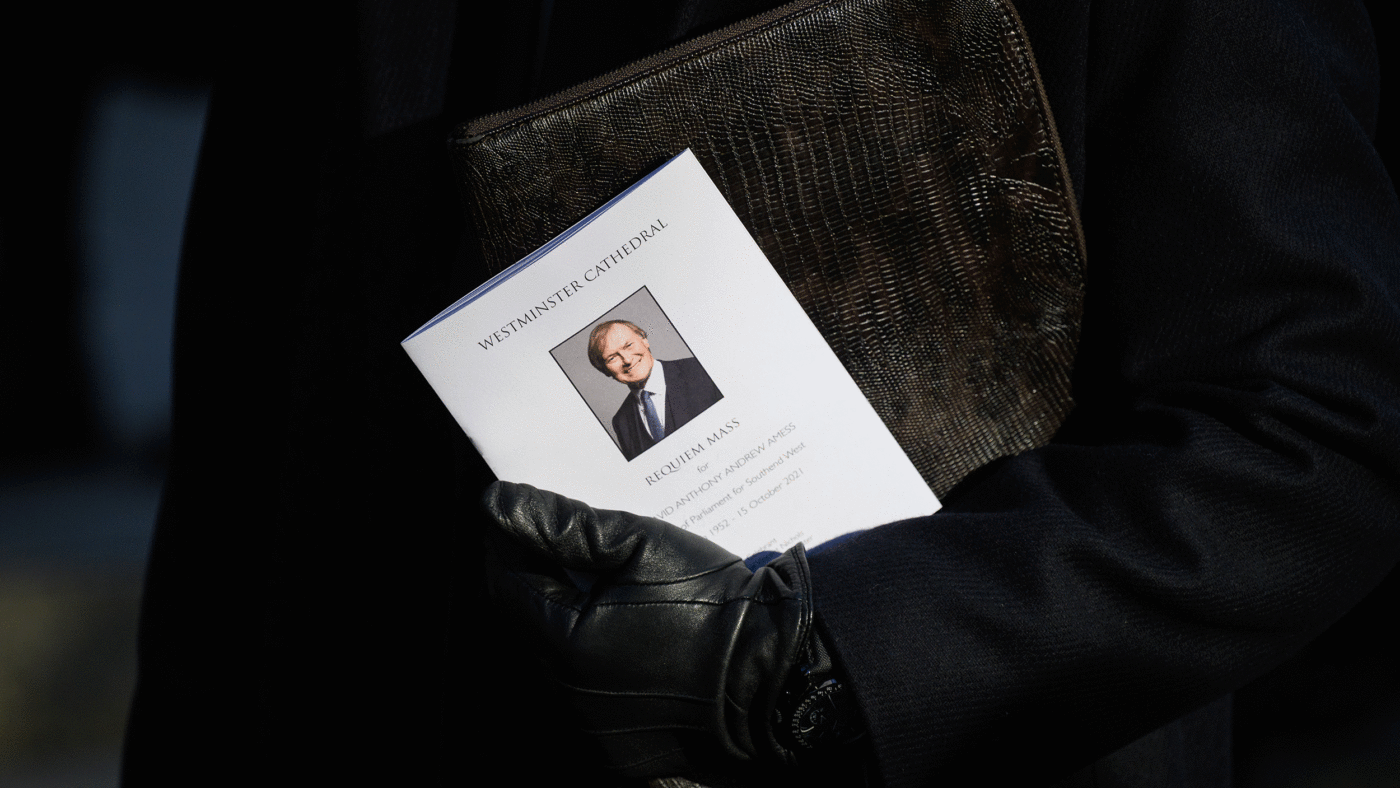When two unarmed officers arrested the murderer of Sir David Amess MP, they did society an enormous favour. The assailant, Ali Harbi Ali, now a convicted Islamist terrorist due to be sentenced today, wanted to be martyred. Denying him that narcissistic prize, and putting him on trial, has helped us know more about what needs to be done to stop violent extremists. I hope that gift wakes him up every morning for the decades he will spend behind bars.
We can’t talk to dead terrorists, however much some deserve that fate. So it’s people like Harbi Ali who hold a mirror up to the systems and doctrines we use to try to interrupt the journey from thought and lethal action. It’s not a pretty sight.
This is his reported experience of our national ‘Prevent’ scheme – the strand of our counter terrorism strategy that attempts to identify people at risk of descending into violent extremism. While doing his A levels he was referred to Prevent by a teacher because his academic performance crashed at the same time as many young people were making their way to Syria to join IS. He was interviewed by two police officers who were concerned enough to refer him to Prevent’s ‘Channel’ programme, which decides and implements interventions for those most at risk of being radicalised. To give this some context, in 2020/21 government statistics say only 14% of those initially referred to Prevent actually received a Channel intervention. In court, Harbi Ali described what that intervention looked like:
‘They booked me in to see a man who worked for the Home Office’, he said. This appears to have been a theological intervention by an Imam.
‘I just said yes so they would go away afterwards…there were supposed to be two meetings but they were happy enough with the first one and I didn’t hear from them afterwards…I just knew to nod my head and say ‘yes’, and they would leave me alone afterwards and they did.’
If you don’t think this looks like a robust attempt to challenge the nascent ideology that ultimately resulted in the attack on a sitting MP years later, I have some sympathy for you. I have less sympathy for professional securocrats who trot out the same threadbare excuse that it’s impossible in a free society to have a net so tightly drawn that it scoops up every person who might want to kill for their beliefs. In the last five years there have been at least five terrorist acts committed in this country by violent extremists who have had previous contact with Prevent. Once is too many. Five events that outraged and terrified the public, and left six people dead and scores with life changing injuries, is a trend that can’t be ignored.
No doubt William Shawcross has considered this and more in his long-awaited review of the Prevent strategy. My organisation, the Counter Extremism Project, contributed to this review. We described Prevent as ‘a parish council solution to a national security problem’. Prevent schemes are scattered across scores of local authorities with different resources, political complexions and other influencing factors that are, to put it delicately, little to do with stopping terrorists. Despite recent evidence that our Muslim communities are, in fact, overwhelmingly supportive of our general counter terrorism approach, politicised advocacy groups have been highly effective in caricaturing the scheme as oppressive and racist.
Despite being firmly part of our counter terrorism strategy, Prevent is now almost exclusively identified with the more palatable ‘safeguarding’ badge. This has, in my view, led to two malign consequences. Firstly mission creep, where the scheme is overwhelmed by referees with needs that ought to have been identified and dealt with by education, social and health services much earlier in life. This has made it harder for professionals involved in Prevent – and that term is pretty elastic – to focus on those few individuals who represent a real risk.
Secondly, our approach to ideological risk management has been far too supine and process-centred. In particular we have a ‘compliance’ approach to terrorist risk management, which lets people like Harbi Ali ‘game’ encounters with therapists by merely appearing to agree with what is being said, the better to sink back into lethal obscurity. Finally, an approach that denies youngsters their own agency and autonomy in adopting a terrorist mindset – and instead always sees this as a function of ‘vulnerability’ – is less likely to see the wood for the trees.
We will need to wait for an inquest to reveal the full extent of Ali Harbi’s relationship with Prevent. It’s incredibly important for public confidence – and to improve policy – that this inquest focuses on the prevention of further deaths. We need the same sort of forensic attention that revealed the awful system failures in the Fishmongers’ Hall terror attack. In the meantime, we need Prevent nationalised, professionalised, reduced in scope, firmly back in the national security zone and both resourced and defended by government to do its work much better. I hope and expect the Shawcross Review will deliver at least some of these home truths to power. Sir David Amess family and the rest of us deserve nothing less.
Click here to subscribe to our daily briefing – the best pieces from CapX and across the web.
CapX depends on the generosity of its readers. If you value what we do, please consider making a donation.


